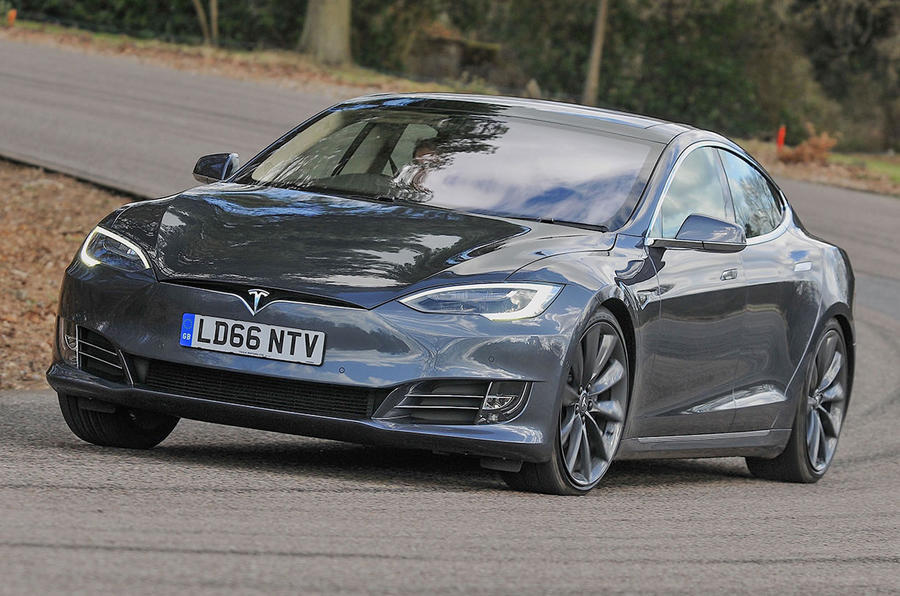The Tesla Model S 75 has been given an upgrade that enables it to accelerate from 0-60mph in 4.3sec, a reduction of 1.2sec.
This ensures that the entry-level Model S is now 0.1sec quicker to the mark than the original 85D variant. The improvements come thanks to new hardware, including improved batteries, as well as software that is being rolled out in new cars.
Similar upgrades to the hotter 75D have trimmed its sprint time by 1.0sec, making its 0-60mph figure 4.2sec.
The 100D has received a smaller improvement of 0.1sec, meaning it can now go from 0-60mph in 4.1sec.

Tesla has also boosted the performance of its Model X.
The 75D has had its 0-60mph time reduced from 6.0sec to 4.9sec, while the 100D's time has come down from 5.2sec to 4.7sec.
The changes to the Model S and Model X ranges will ensure they remain a step ahead of Tesla's forthcoming Model 3. Company CEO Elon Musk has previously stated that this new cheapest model will have a 0-60mph time of less than 6.0sec.





Join the debate
Add your comment
Plenty on the road...
If I was to be in the market in the Telsa price segment, I'd certainly give them a look, although I do wonder how it would have coped with the 1385 mile round trip I did in 48 hours dropping my daughter off at Luton airport and picking a friend up in Norfolk who was coming up to visit last week - I think I'd have had rage anxiety in a Telsa at some stage in the odyssey, while my little remapped Corsa 1.3 Ecoflex turbo diesel played with the trip, easily cruising at 80/85 mph on the motorway, (who needs to go faster?), and averaging 69.8 MPG brim to brim...
With the modern turbo diesel competition that's out there in the price range though, it would have to be really impressive to tempt me away from a top of the range Jaguar F Pace, a new 2.5 Disco, or even higher up the rage, an XJ 3.0 TD, although I would be tempted to wait for the 6 cylinder Ingenium diesel lump to be introduce, I think this engine will be all the the new Ingenium range promised to be, especially with twin turbos spooling it up...
useful info
And since they are at the topic of improvements, lets see if they Tesla improve service and repair times as well as availability of spare parts, so owners do not need to wait weeks for repairs and in the meantime having their cars away from the road.
I don't know enough
As before if this is a dumb question apologies all.
johnfaganwilliams wrote:
That's not really how it works.
In combustion engines, a more powerful unit is usually less efficient, but electric motor efficiency has little to do with how powerful they are. A 600bhp motor driven at the same speed as a 100bhp motor would use roughly the same amount of energy, and therefore travel the same distance on a charge. Obviously if you put your foot to the floor, the 600bhp car is consuming 6x more energy than in the 100bhp one, but only because you're fully exercising the additional power.
In fact, more range and more power usually go hand in hand. Battery cells have limits of energy *and* power they can supply, so as more cells are added to provide more energy (range), it also allows more power.
As for Teslas caning it, that's generally the highlight of most test drives. Acceleration's unusually addictive in any EV, and a Tesla in particular responds to pedal inputs like almost nothing else.